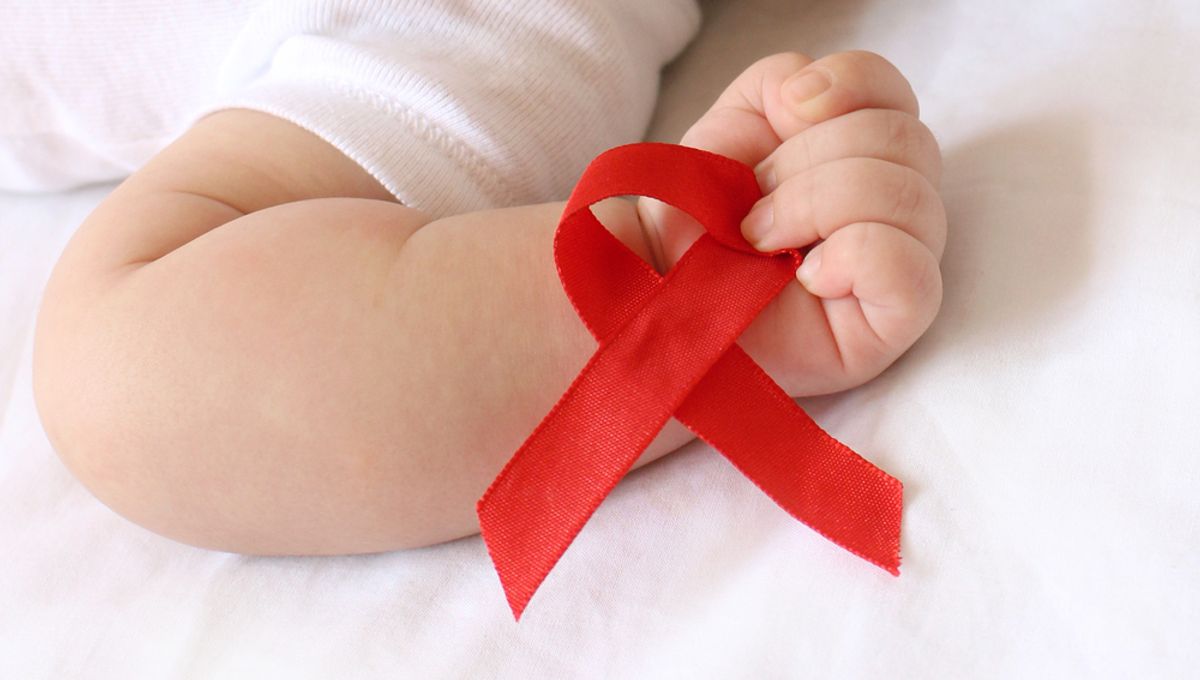
Medical advancements are a wonderful thing. When HIV was first discovered back in the 1980s, it was considered a death sentence for anybody who received the diagnosis. With time and careful research, treatments were found; people started to live long and healthy lives with the virus, with a few individuals even being cured in recent years. And now, a new study claims we all but have a vaccine.
“Despite advances in HIV-1 prophylaxis, vertical transmission remains a pressing problem in developing countries,” begins the paper. Indeed, despite the leading cause of HIV transmission being unprotected sexual activity or sharing needles, vertical transmission – that is, the disease being passed from mother to child during pregnancy, birth, or breastfeeding – is responsible for more than 100,000 children acquiring the virus every year.
But as fragile as newborn children are, they have one advantage when it comes to treating illnesses: their immune systems are, for the first few weeks of life, uniquely moldable through careful therapies. Perhaps, the researchers hypothesized, a very early dose of broadly neutralizing antibodies – generalist virus-killing proteins that have recently shown promise in treating and preventing HIV – could impart durable immunity to the disease throughout infancy.
Now, it should be noted that these results haven’t been shown in humans – the experiments were carried out in rhesus macaques, who can contract a virus very closely related to HIV known as simian-human immunodeficiency virus, or SHIV. Nine newborn monkeys were given antibodies within 24 hours of birth, in the hopes that it would “program” their immune systems to produce these virus-fighting proteins on their own – but would it work?
Initial signs were hopeful. As early as two weeks after the treatment, anti-HIV proteins could be detected in the monkeys’ bloodwork; by 20 weeks, they were producing active antibodies on their own. To mimic exposure to HIV from breastfeeding, the monkeys had escalating doses of a SHIV virus squirted into their mouths – other, non-treated macaque babies contracted the illness, but those who received the treatment remained uninfected even after being given pure, undiluted virus.
The experiment had been a success – and best of all, it had only taken a single treatment to achieve. The advantages of bNAb infusions have so far proven elusive in developing countries, where the majority of these infant cases are found, since they usually require multiple, ongoing treatments. That this new therapy only takes one round – and that it is most effective when administered at a very young age, when mothers and babies are most likely to be in contact with health workers – is a huge advantage for distribution in the real world.
“This is a one-and-done treatment that fits the critical time when these mothers with HIV in resource-limited areas are most likely to see a doctor,” Amir Ardeshir, associate professor of microbiology and immunology at the Tulane National Primate Research Center and first author of the study, said in a statement this week. “As long as the treatment is delivered close to birth, the baby’s immune system will accept it and believe it’s part of itself.”
It’s also important to note how far out we are from a large-scale distribution of this therapy. Nine macaques does not a viable vaccine for humans make, and the researchers are very clear that there are several limitations to the study: only one of the dozens of HIV variants was studied, and the monkeys’ own production of the antibodies wasn’t confirmed – only deduced. Plus, of course, the big one: humans are not macaques – we grow at different rates, to different sizes, and so the exact effectiveness in human babies is something yet to be figured out.
Nevertheless, it’s a big and exciting step towards a vaccine that could save hundreds of thousands of lives – especially if it’s possible to make it affordable and practicable in the low-income countries who need it.
“Nearly 300 children are infected with HIV each day,” Ardeshit said. “This approach could help protect newborns in high-risk areas during the most vulnerable period of their lives.”
“Nothing like this was possible to achieve even 10 years ago,” he added. “This was a huge result, and now we have all the ingredients to take on HIV.”
The study is published in Nature.
Source Link: A One-Shot Vaccine For HIV Might Actually Be On The Cards